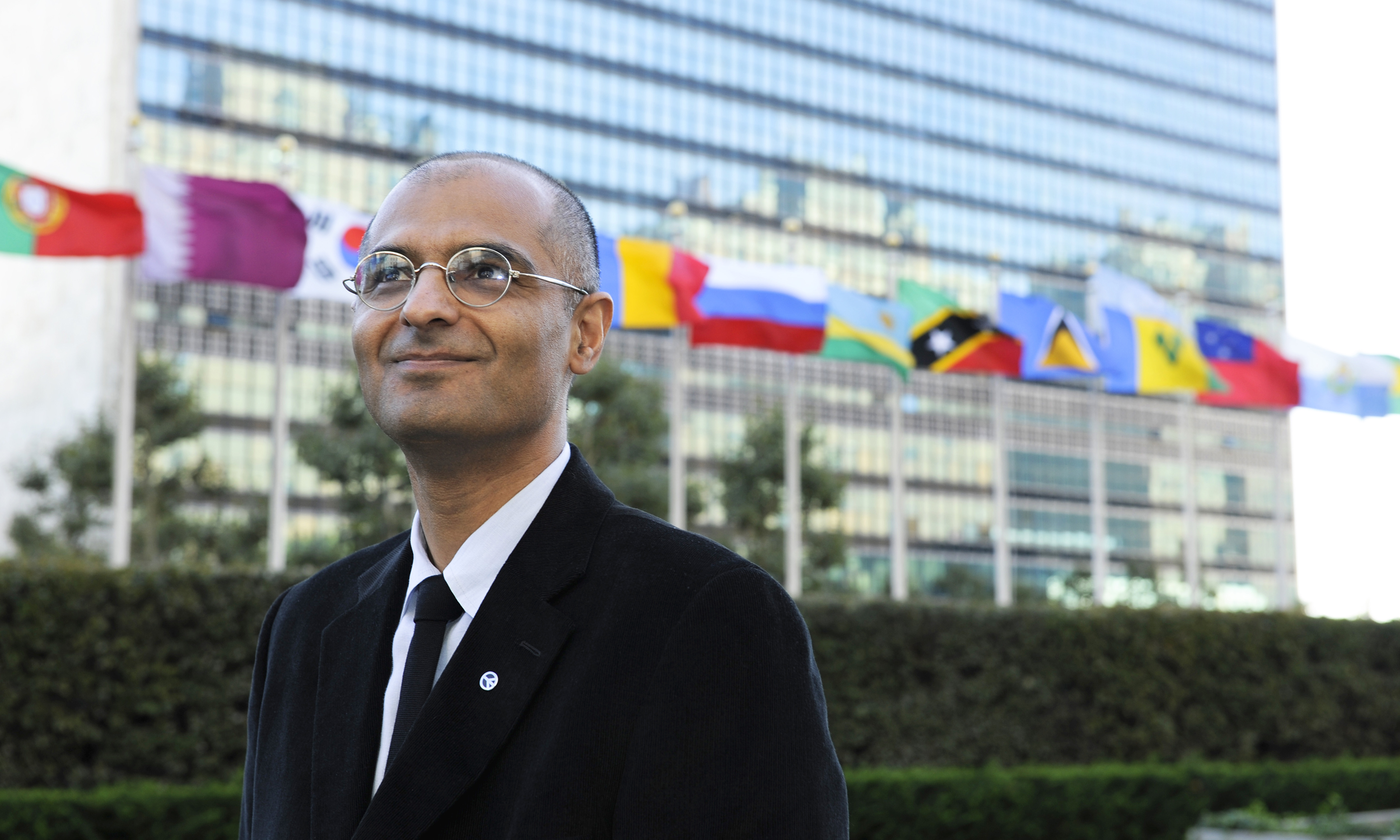Zia Mian, a physicist and co-director of Princeton University’s Program on Science and Global Security (SGS), has been appointed to the U.N. Secretary-General’s Advisory Board on Disarmament Matters.
Established in 1978, the Board advises the U.N. Secretary-General, currently António Guterres, on matters concerning arms limitation and disarmament, including studies and research. Some of the topics discussed by the Board in recent years concern nuclear and conventional disarmament issues as well as emerging weapons technologies, armed unmanned aerial vehicles, and cyber warfare and security.
The U.N. Secretary-General chooses the 15 members of the Board from all regions of the world for their knowledge and experience in the field of disarmament and international security. Board members are appointed by the Secretary-General to serve on the Board in their personal capacity for their knowledge and expertise on disarmament issues. The U.N. Secretary-General reports annually to the U.N. General Assembly on the activities of the Advisory Board.

“The charter of the U.N. affirms its purpose is to save succeeding generations from the scourge of war, reaffirm faith in fundamental human rights, in the dignity and worth of the human person, in the equal rights of all people, and of all nations, to establish justice and respect for international law, to promote social progress and better standards of life in larger freedom,” said Mian. “At a time when humankind faces profound challenges from the threat of war, conflict, arm races, inequality and injustice, it is a great honor to be asked to be part of this cooperative effort to help humanity create a path to a safer, more peaceful world, with justice for all.”
Mian is a recipient of the Linus Pauling Legacy Award from the Oregon State University and the Leo Szilard award from the American Physical Society. He also was selected by the U.K. Campaign for Nuclear Disarmament as one of the “60 faces of CND” to mark its 60th anniversary. In 2021, he was elected a fellow of the American Physical Society for “promoting global nuclear risk reduction and disarmament through academic research, public speaking, technical and popular writing, and organizing efforts.
“It's hard to think of someone other than Zia who could bring more expertise and unique perspectives to the table on a broad range of disarmament matters. Zia won't hesitate to raise the realities the world is facing,” said Alexander Glaser, co-director of SGS, associate professor of mechanical and aerospace engineering and international affairs.
Mian has presented many times to the U.N. General Assembly First Committee. Also known as the Disarmament and International Security Committee, it deals with disarmament, global challenges, and threats to peace that affect the international community and seeks out solutions to the challenges in the international security regime. As one of the six main committees of the General Assembly, all U.N. member states participate in it.
“This is a critical time for the future of the international security system and for nuclear arms control. Zia Mian understands the issues and the players, has remarkable strategic judgement, and is an effective communicator. I am therefore very pleased that U.N. Secretary General Guterres is strengthening his Advisory Board on Disarmament Matters by adding Mian,” said SGS founder Frank N. von Hippel, senior research physicist and professor of public and international affairs, emeritus.
The Advisory Board also serves as the Board of Trustees of the U.N. Institute for Disarmament Research (UNIDIR). Based in Geneva, UNIDIR conducts independent research on disarmament and related problems, particularly, international security issues.
Mian was a nonresident fellow of UNIDIR for 2017 to 2018 to assist on matters related to a treaty banning the production of fissile materials for nuclear weapons or other nuclear explosive devices and to support the Secretary-General’s Group of Governmental Experts on this issue. Mian is co-chair of the International Panel on Fissile Materials, an independent group of arms control and nonproliferation experts from 16 countries, based at SGS.

